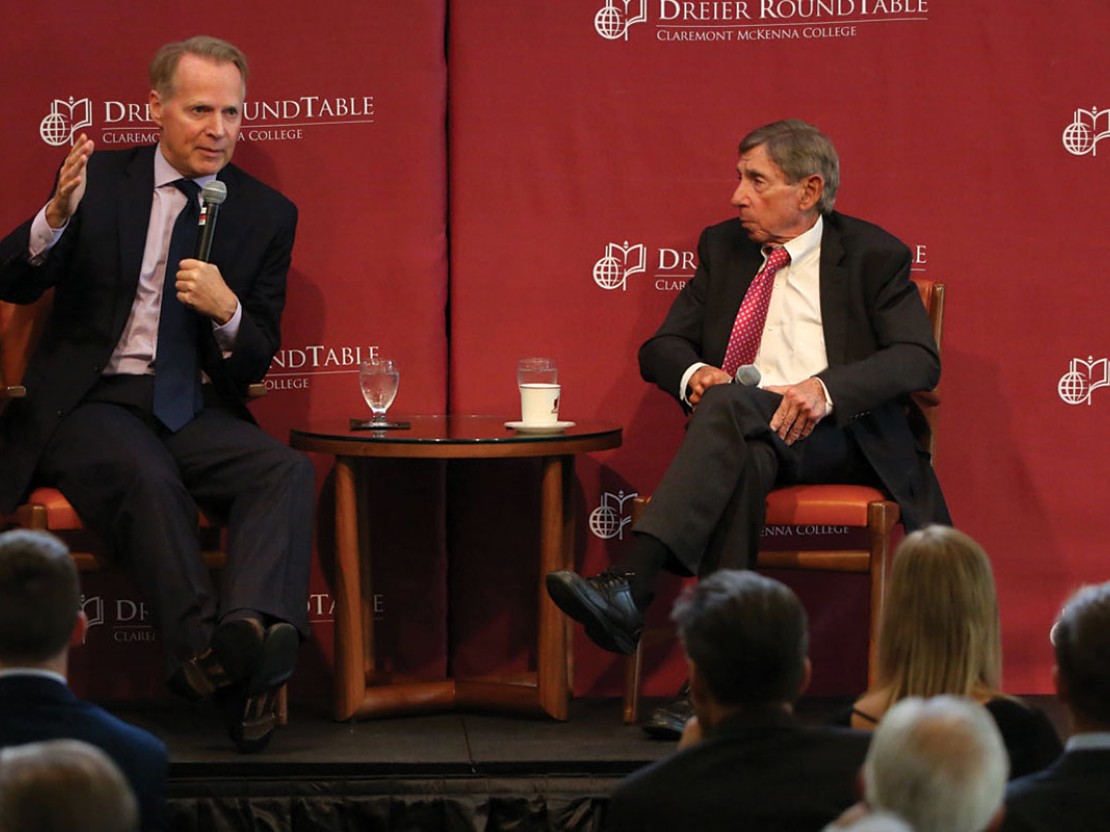“Before, you think, people who run multibillion-dollar companies, they’re completely different, they’re almost gods of sorts. But once you get to know people, I think it humanizes the whole experience, and it gives you a lot more confidence that you can actually do things that you didn’t think you could do before.”
– Alexei Agratchev ’99, in “What This Founder of a Multi-Million-Dollar Company Learned From Former Disney CEO Michael Eisner” in Entrepreneur magazine.
“In theory, gender-neutral policies that attempt to level the playing field by adjusting measures of productivity to account for early child-rearing sound promising. However, as our research shows, such policies could have unintended consequences that actually hurt women.”
– Heather Antecol, Boswell Professor of Economics (with Kelly Bedard and Jenna Stearns of U.C. Santa Barbara) in “How Men Benefit From Family-Friendly Tenure” on The Conversation (theconversation.com).
“[A]s students learn concepts such as consent and bystander intervention, they take these lessons into the real world when they graduate and contribute on their own individual levels to ending this culture. So, as students and the greater campus community, it’s on all of us to end campus sexual assault and the current cultural norms that condone this violence in our nation.”
– Lindsay Burton ’19, on her appointment to the national It’s On Us Committee.
“If we are to learn, we must recognize what we don’t know. If we are to develop confidence, we must constantly take risks. If we are to cherish free speech, we must support and hear the speech with which we most disagree. The most persuasive arguments anticipate opposing viewpoints. Free expression without listening is of little use.”
– Hiram Chodosh, President of Claremont McKenna College, from the 2016-17 convocation ceremony.
“Of course, for me one of the most remarkable features of the Russian past is the way Russians deal with political dissent. In Russia, politics is most often a blood sport. Governments suppress, punish, and kill dissidents, but a few intrepid souls dissent anyway.”
– Gary Hamburg, Otho M. Behr Professor of the History of Ideas, from an interview in cmc.edu/news on his new book, Russia’s Path Toward Enlightenment: Faith, Politics, and Reason, 1500-1801 (Yale University Press, 2016)
“Indian Americans, almost 1% of the country’s population, are increasingly stepping up their political involvement. After having already achieved considerable economic success and social mobility—the community has an average family income of over $100,000 (almost double that of white Americans)—the group is actively engaging in and influencing the politics of its new homeland.”
– Vivan Marwaha ’17, “Indian-Americans Consolidate Political Power” in The Hill’s Congress Blog
“China is not shy about using overseas Chinese communities to advance its interests abroad. What’s brilliant about the Chinese government’s interest strategy is that it exploits the freedoms of Western democracies against Western democracies.”
– Minxin Pei P’11, Tom and Margot Pritzker ’72 Professor of Government and George R. Roberts Fellow, from “Chinese-Canadians Fear China’s Rising Clout Is Muzzling Them” in The New York Times.
“History reminds us of the humanity of people in the past, who thought and acted in ways perhaps unfamiliar to us. Encountering their perspectives requires imagination and empathy. In the process, we gain compassion for people today who hold views and live lives different from our own, and we deepen our understanding of the wide range of experiences across societies and cultures.”
– Diana Selig, Kingsley Croul Associate Professor of History and George R. Roberts Fellow, from the 2016-17 convocation ceremony.
“It’s in these moments, when we’re especially vulnerable to fear and to hatred, that we need to make sure we’re not misdirecting our blame; to make sure we remember that Syrian families are fleeing these same types of horrors, daily. The actions of single individuals do not define a race, gender or religion, and if we begin to think that they do, we give up on the principles that make us American.”
– Chris Temple ’12, in a CMC.edu interview on his documentary Salam Neighbor, now on Netflix.
“Precisely because it opens itself to a variety of interests and ideas, democracy is particularly in need of a moderating politics. It not only requires attempts to reason with and persuade one’s fellow citizens, but it also requires that one be open to being persuaded by others.”
– George Thomas, Burnet C. Wohlford Professor of American Political Institutions, in “Madison and the Perils of Populism” in National Affairs.
